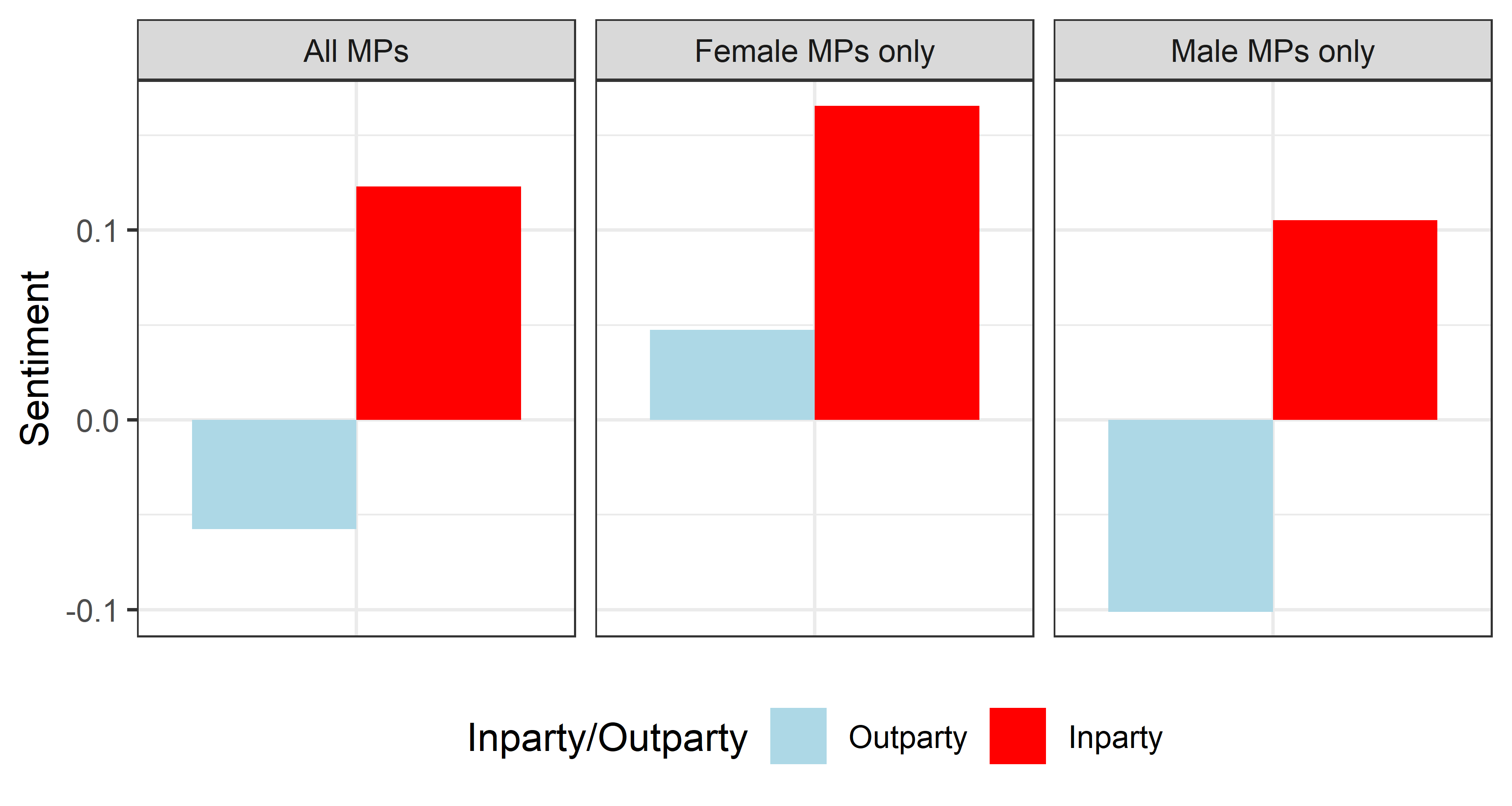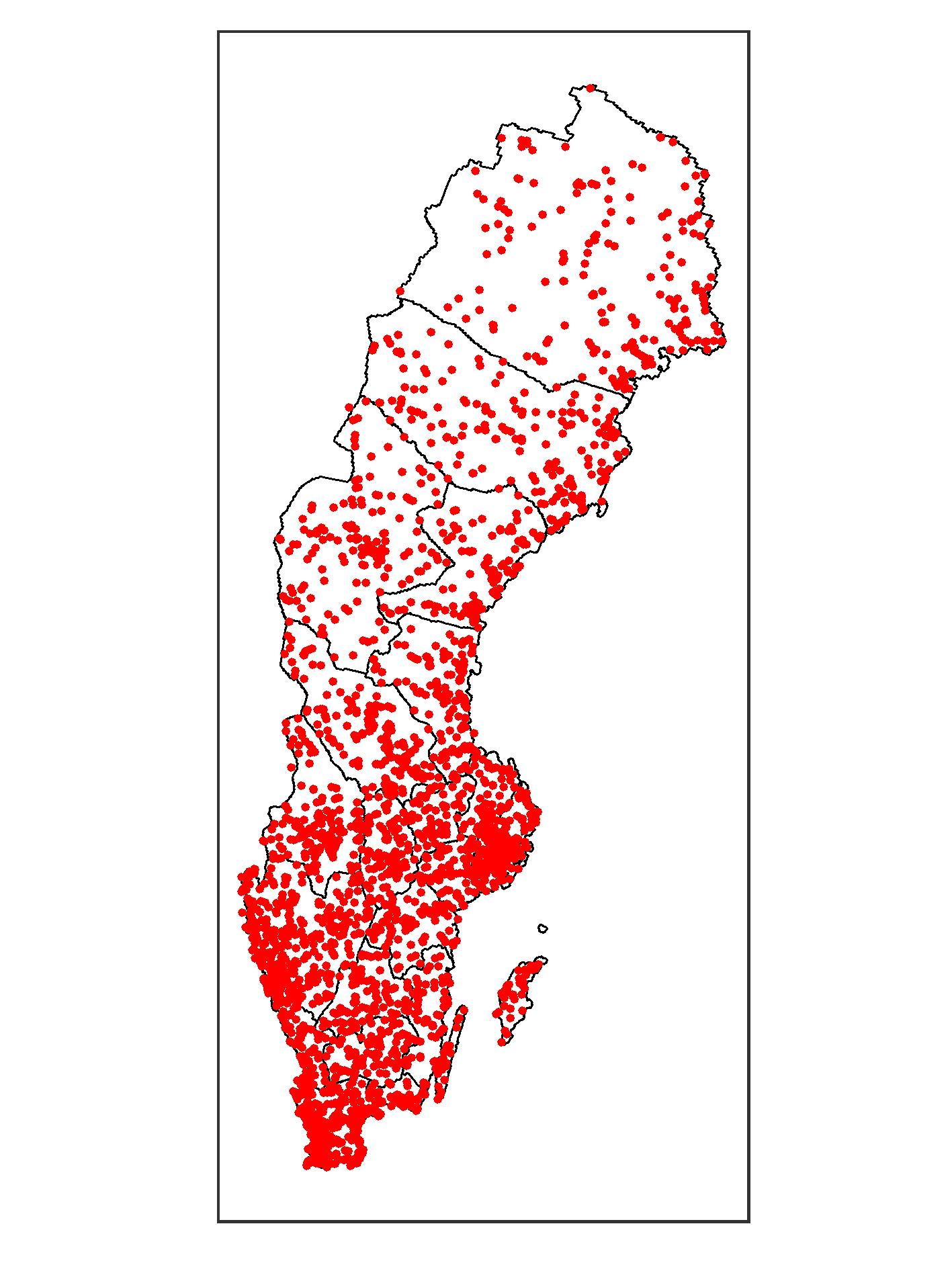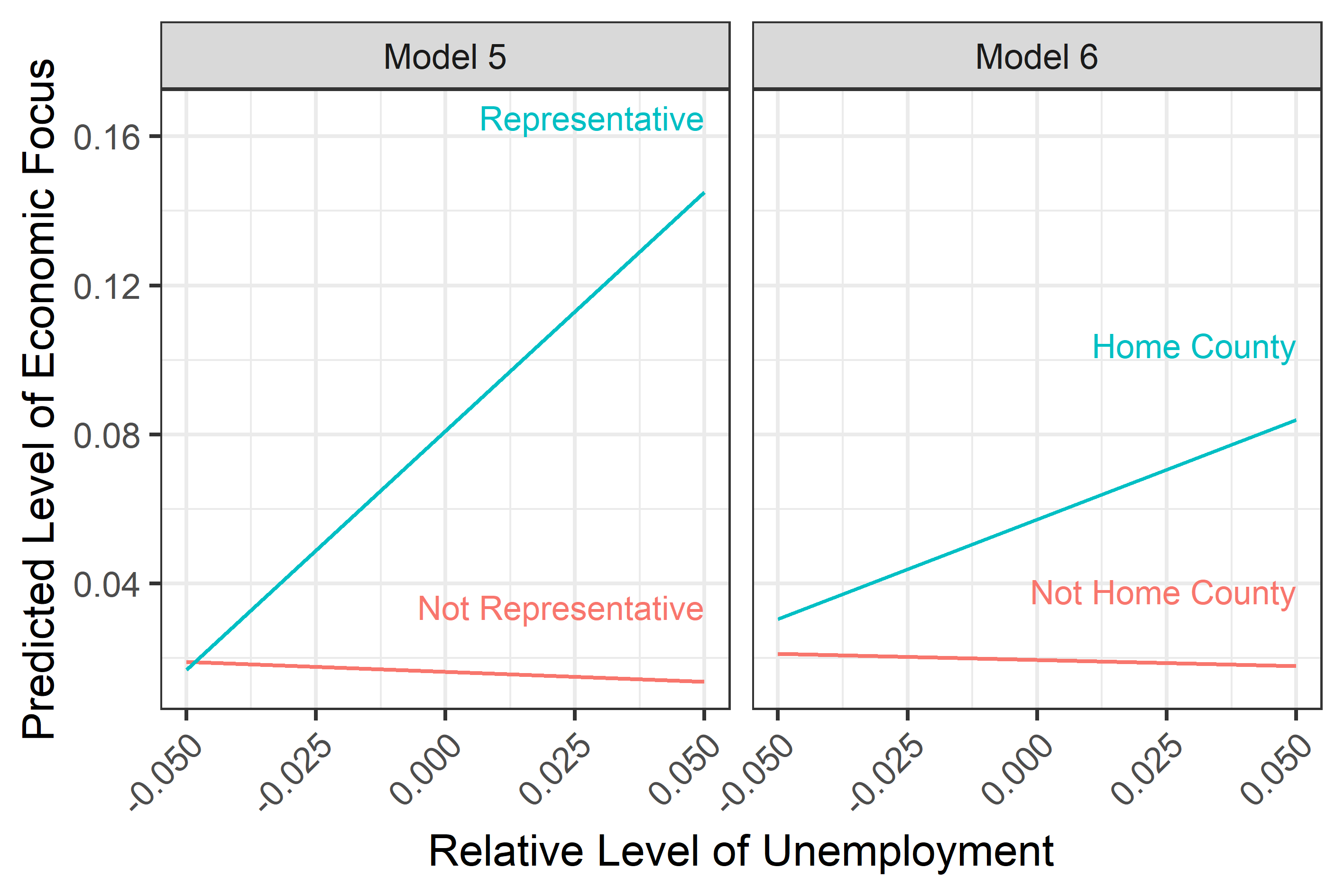Selected Working Papers
Under Review
With Hanna Bäck and Andrej Kokkonen

Affective polarization is increasing in many parts of the world, and previous research has shown that elite communication may have important consequences for intergroup conflict at the mass-level. It has also been suggested that female and male politicians engaging in different communication styles may influence affective polarization in the electorate. However, there is a lack of research analyzing such gendered patterns of polarizing communication among political elites on social media. We focus on filling this gap in the literature, analyzing how politicians talk about each other on social media in 24 western countries. Specifically, we use machine learning to measure the tone of over 200.000 twitter interactions, and find that male politicians are more likely to attack political opponents representing “outgroups”, and that male representatives receive more out-group negativity. We propose that a ”male hostility spiral” explains this pattern, where politicians attack each other online for retribution – creating a negative spiral where hostility sparks hostility.
Reppin’ your Constituency? Geographical Representation in Swedish Parliamentary Debates
In progress.


Which places do politicians appeal to, and how do they appeal to them? While previous research have emphasized how politicians appeal to different social groups of the population to gain votes, research on geographical appeals is scarce. This study advances this literature developing a new approach for measuring geographical appeals using Named Entity Recognition and Geocoding. Subsequently I apply this methodology to measure geographical appeals in Swedish parliamentary speech over almost five decades. In line with previous literature, I find that politicians are more likely to mention places in regions they represent, and originate from. In addition, I study the words surrounding each mention, to measure which issues are discussed in the context of different regions using semi-supervised LDA Topic Modelling. I argue that politicians make local appeals to display local knowledge, and in line with this argument I find that adapt their topical focus in response to changes in local unemployment and local public opinion. These results improves our understanding of how politicians appeal to their constituencies, and have relevance for the study of representation and group appeals, and show several promising avenues for future research.



